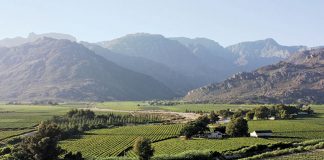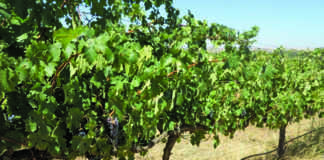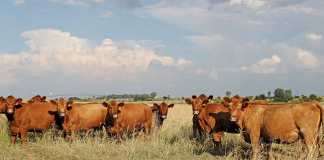According to Shell, the atlas is the result of a study conducted by a team of eight leading South African hydrogeologists into the occurrence and characteristics of groundwater in the Karoo area. Peter Rosewarne, a leading hydrogeologist from mining consultants, SRK Consulting, who was involved in compiling the groundwater atlas, told Farmer’s Weekly this was the first groundwater atlas produced for the Karoo area, and, to his knowledge, also for any part of South Africa.
“The groundwater atlas is based on a desktop review of available information but with additional input and assessment by a group of eminent hydrogeologists with more than 250 years of combined experience, much of this in the Karoo area,” explained Rosewarne.
“For Shell, the purpose of this groundwater atlas is to assist it to better understand the Karoo’s groundwater which will enable it to fulfil its promise not to compete with the residents of the Karoo for their fresh water during shale gas exploration (and mining) activities,” said Jan Willem Eggink, Shell SA’s upstream general manager. Despite the fact that the hydrogeologists working on the groundwater atlas were employed by Shell, Rosewarne believes there is no reason to doubt the credibility of the information contained in the document into question.
“The atlas is the result of consensus agreement by a respected group of hydrogeologists of key groundwater attributes and therefore represents a credible body of work that can stand up to any peer review. It covers basic groundwater attributes and ‘fracking’ itself is largely irrelevant to the work or the findings, so there is no bias in this respect,” he said.
Some key outcomes of the study help to characterise the groundwater attributes of the Karoo, the most important being depth of water level, groundwater quality, presence of dolerite intrusions and groundwater yield. The atlas indicates that the yield, quality and natural refilling of the groundwater systems generally increase, or improve, when moving from west to east and from south to north in the Karoo.
Furthermore, the hydrogeologists concluded that shallow groundwater, at less than 300m in depth, is well understood and documented. However, the deeper geological (hydrogeological) model requires further exploration. Shell has made all data freely available for research purposes and according to Rosewarne the atlas is also intended for general use by any interested parties.
“The data gathered will be of use to anyone who will benefit from a better understanding of the groundwater in the Karoo,” said Rosewarne. Farmers in particular could benefit, he added.











